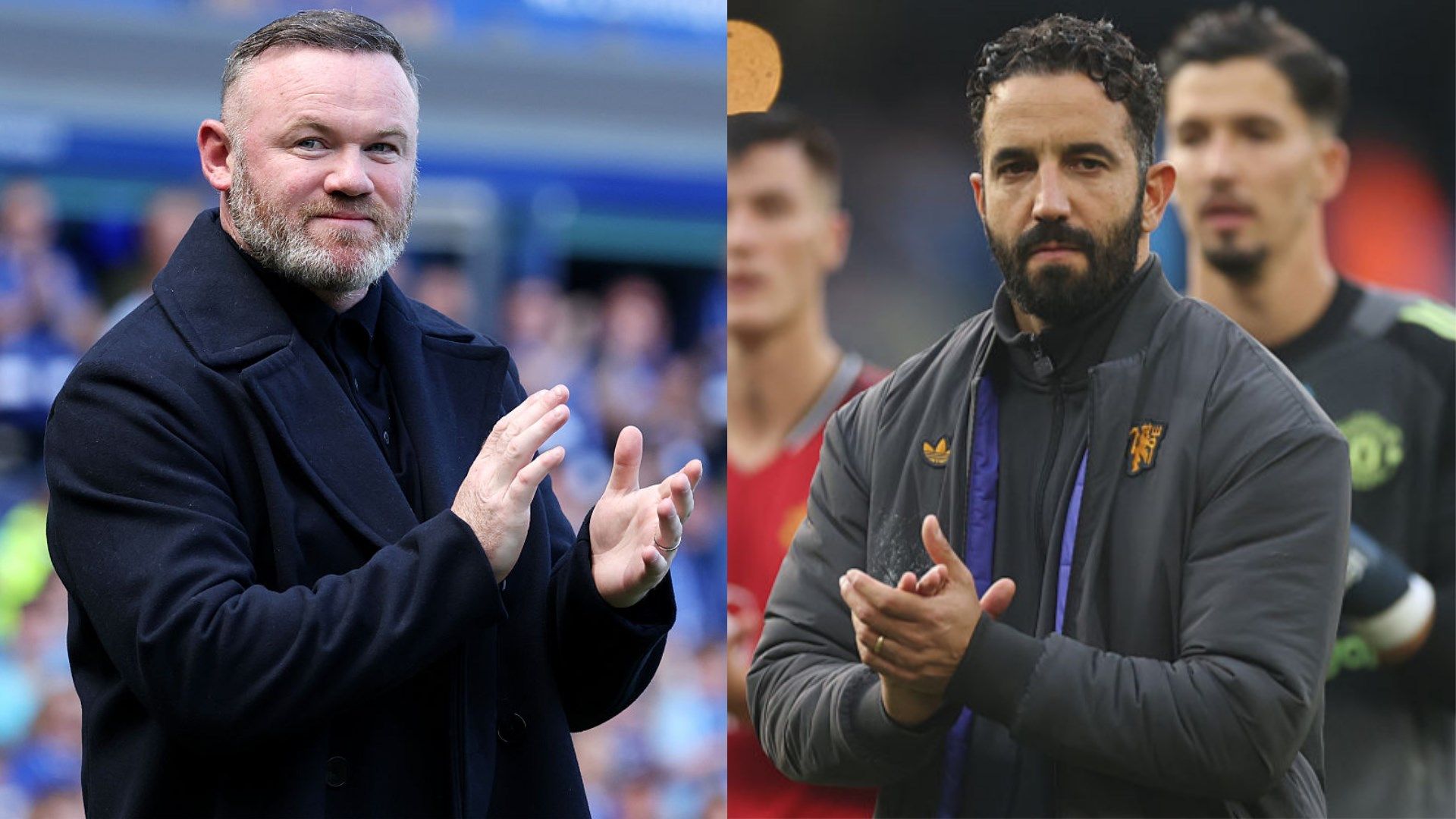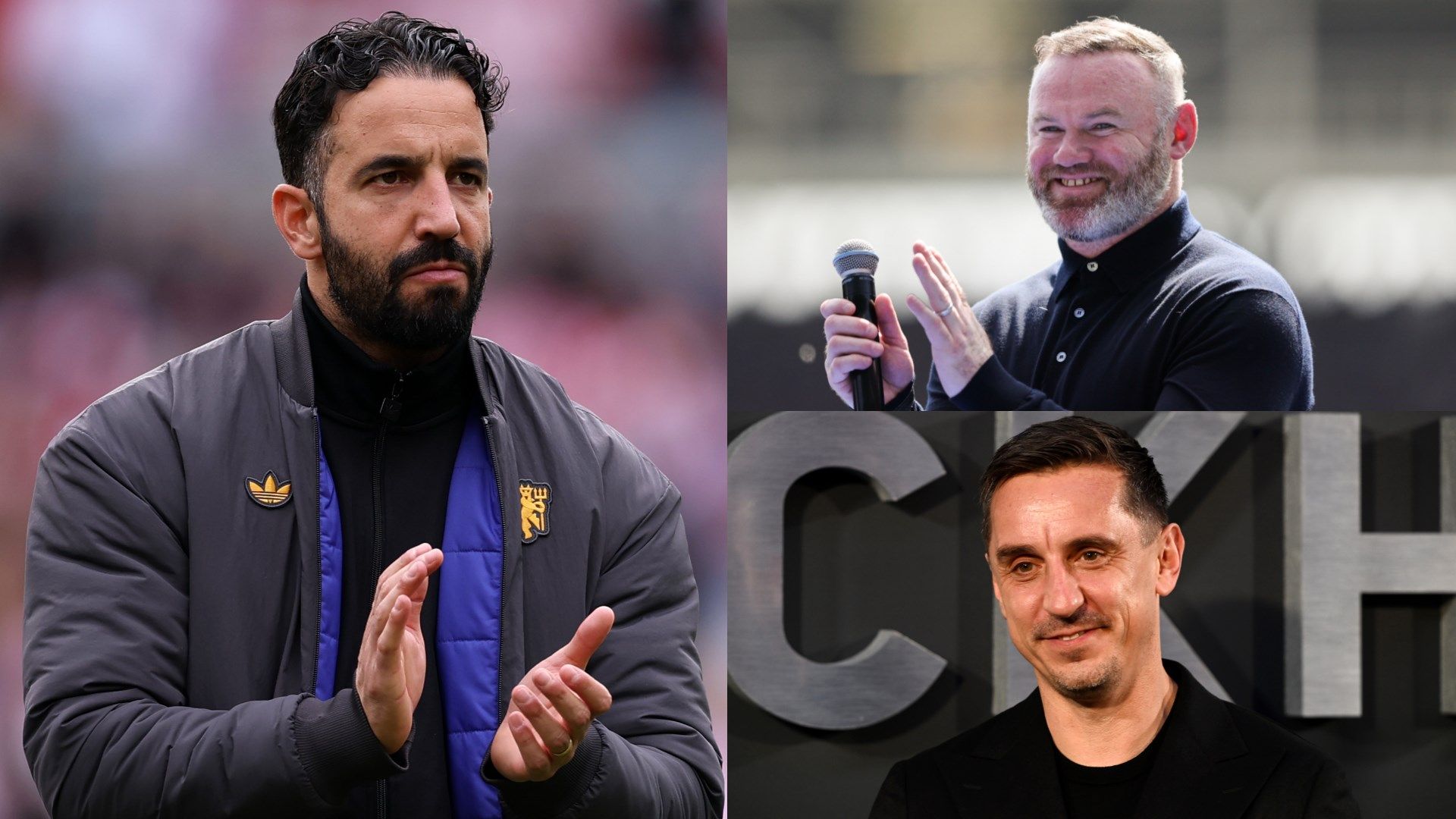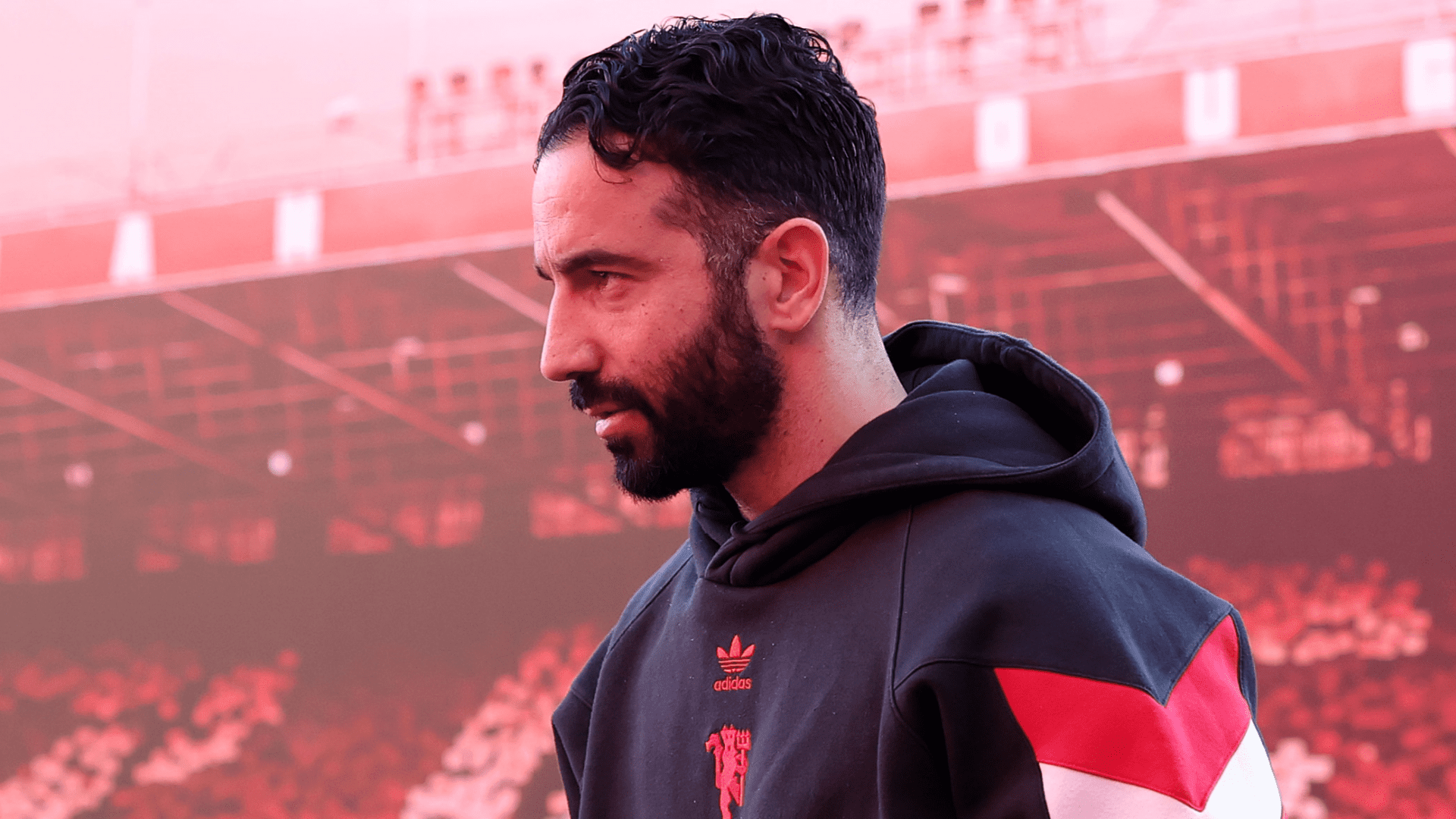


Rooney’s Ongoing Criticism of Amorim Amid Manchester United’s Recent Triumph
Wayne Rooney, the legendary figure at Manchester United, has once again voiced his concerns about the team’s direction under current manager Ruben Amorim, even as a hard-fought victory against Sunderland offers a momentary boost to the squad’s morale. This ongoing debate highlights the pressures facing the club and its leadership in their quest for top honors in the Premier League.
Amorim’s Temporary Relief Following the Sunderland Clash
Ruben Amorim managed to secure his position for the time being by guiding Manchester United to a decisive 2-0 win over Sunderland, marking the end of their run before the international break. Although this success has lifted team spirits to some extent, it represents only the 19th victory under the present coaching staff, pointing to ongoing challenges.
Assessing United’s Performance Metrics
The coaching team’s win rate stands at a mere 38 percent, which falls short of expectations for a club like Manchester United, especially as they strive to reclaim their spot among the elite contenders for major trophies. As the club’s record-breaking scorer, Rooney has expressed skepticism about any rapid improvement under Amorim’s guidance.
Rooney’s Insights from His Podcast
In a recent episode of his podcast, The Wayne Rooney Show, the former star offered a candid assessment of the situation at Old Trafford. He remarked, “I’m baffled by the current state of affairs. Having stepped into management myself, I understand the difficulties, and at my age, Amorim is still building his career. Yet, what’s unfolding at Man United doesn’t reflect the club’s true identity. I genuinely wish for a turnaround, but based on what I’ve observed, I’m not optimistic about it happening.”
Amorim Responds to the Backlash
When confronted with feedback from figures like Rooney and another club icon, Gary Neville, who have questioned United’s strategies, Amorim maintained his stance. He explained, “It’s expected to face scrutiny based on outcomes, especially with the weight of previous seasons. I’m focused on the present; we’ve discussed this year’s issues already. I’m not arguing that a new setup would improve us-that’s not the core issue. From my analysis of the losses, the formation wasn’t the decisive factor. Diverse views are perfectly acceptable.”
Rooney’s Continued Involvement in the Debate
Wayne Rooney has re-entered the conversation on his podcast, addressing Amorim’s recent statements and his hesitation to shift tactics. Rooney shared, “Sharing my thoughts wasn’t easy, but honesty is crucial. Amorim has openly criticized the squad, even labeling it as the least effective in Manchester United’s history. That’s his honest take, and players must stay committed to his instructions and aim for victories. The path to change lies in concentrating on performance and tactics under his leadership.”
The Realities of High-Stakes Football
Drawing from his own experiences, Rooney added, “As a player, I’ve faced criticism and learned to block it out while focusing on winning. At a giant like Manchester United, poor results invite scrutiny, but excelling brings immense rewards. It’s all about maintaining focus amid the pressure.”
Looking Ahead for Amorim and United
With a brief period ahead to train those not on international duty, Amorim is set to prepare the team for their next challenge. He aims to secure consecutive Premier League wins when Manchester United faces their longstanding rivals, Liverpool, on October 19, in what promises to be a demanding encounter.
The Context of Rooney’s Comments
Wayne Rooney, the iconic former Manchester United striker, has always been vocal about the pressures of professional football. In his latest remarks, Rooney emphasized, “You have to expect criticism,” highlighting the inevitable scrutiny that comes with the sport. This statement gained traction amid an ongoing dialogue with current Manchester United manager Ruben Amorim, following a hard-fought victory against Sunderland. The win brought a wave of relief for Manchester United fans, easing tensions after a string of inconsistent performances, and Rooney’s words added depth to discussions about resilience in football.
Rooney’s comments reflect his extensive experience in handling public and media backlash throughout his career. As one of the most decorated players in Premier League history, he’s faced criticism in sports circles numerous times, from tactical decisions on the pitch to off-field controversies. This exchange with Amorim underscores how veteran insights can influence modern football strategies, especially in high-stakes environments like the Premier League.
Rooney’s Philosophy on Criticism
At its core, Wayne Rooney’s approach to criticism in sports is about turning negativity into a tool for growth. He often shares how feedback, whether from fans, coaches, or rivals, pushed him to refine his skills and mindset. For instance, during his playing days at Manchester United, Rooney encountered intense scrutiny over his form, yet he used it as motivation to deliver standout performances, including crucial goals that turned games around.
This philosophy extends beyond personal anecdotes. Criticism in sports, as Rooney points out, is a double-edged sword-it’s unavoidable in a high-profile league like the Premier League, but it can foster resilience and improvement. Keywords like “Wayne Rooney criticism” and “handling scrutiny in football” often surface in athlete discussions, emphasizing how embracing such challenges leads to better mental fortitude and on-field decisions.
Exchange with Ruben Amorim and the Sunderland Victory
The conversation between Rooney and Amorim has sparked interest in football communities, particularly after Manchester United’s relief from their Sunderland victory. Amorim, known for his tactical prowess and ability to rally teams under pressure, has been exchanging ideas with Rooney about managing expectations in the Premier League. Rooney’s input on expecting criticism aligns with Amorim’s strategies, as seen in post-match analyses where the manager credits player feedback for boosting team morale.
In this case, the Sunderland win served as a turning point, relieving mounting pressures on Amorim’s squad. Rooney’s commentary highlighted how such victories can shift narratives, turning criticism into opportunities for comebacks. Fans and analysts have noted parallels in how both figures navigate media hype, making this exchange a key topic in searches for “Ruben Amorim Manchester United tactics” and “Wayne Rooney advice for managers.”
Benefits of Embracing Criticism in Football
Embracing criticism offers several advantages for athletes and teams. First, it builds emotional resilience, helping players like those in Manchester United stay focused during tough seasons. Second, it encourages self-reflection, leading to tactical improvements-Rooney himself attributed career highs to analyzing feedback. Third, in a competitive landscape, it can enhance public image, as seen with players who turn criticism into redemption stories.
From a team perspective, benefits include stronger coach-player dynamics, as demonstrated in Amorim’s setup. By openly discussing issues, teams foster unity, which was evident in the Sunderland relief victory. Additionally, long-term, this approach can lead to sustained success, reducing burnout and improving overall performance metrics in the Premier League.
Practical Tips for Handling Criticism
If you’re an aspiring footballer or even a fan dealing with online backlash, here are some actionable tips inspired by Wayne Rooney’s experiences:
- Stay Grounded with Routine: Establish a daily routine that includes mental health practices, like journaling or light training, to process criticism without letting it overwhelm you.
- Seek Constructive Feedback: Not all criticism is negative-filter it by discussing with mentors, as Rooney did with former coaches, to identify real areas for growth.
- Use It as Fuel: Turn negative comments into motivation, much like Rooney did before big matches. Set small goals post-criticism to track progress and build confidence.
- Build a Support Network: Surround yourself with trusted peers or family, as this mirrors how Manchester United players rally under Amorim’s leadership during scrutiny-filled weeks.
These tips are practical for anyone in sports, helping transform criticism into a pathway for personal and professional development.
Case Studies from Football History
Delving into football case studies, we see patterns similar to Rooney’s situation. For example, during Manchester United’s 2013 season under Sir Alex Ferguson, Rooney faced heavy criticism for inconsistent play, yet he rebounded with key contributions that aided title wins. This case illustrates how addressing scrutiny head-on can lead to legendary comebacks.
Another example is from recent Premier League history: Managers like Jurgen Klopp at Liverpool have used player exchanges to navigate criticism, resulting in trophy-laden eras. In Amorim’s case, the Sunderland victory echoes these studies, showing how open dialogues, akin to Rooney’s, can alleviate immediate pressures and set the stage for future successes.
First-Hand Experiences from Players
Drawing from shared experiences in the football world, many players echo Rooney’s sentiments. For instance, former teammates of Rooney at Manchester United have recounted in interviews how his candid advice on handling media storms helped them cope during low points. One player mentioned in retrospectives how Rooney’s guidance during a particularly tough season mirrored the recent Amorim exchange, emphasizing the value of veteran wisdom.
These first-hand accounts highlight the real-world application of expecting criticism, making it a relatable topic for readers searching for “football player experiences with scrutiny.” By learning from such stories, emerging athletes can better prepare for the demands of professional sports.









